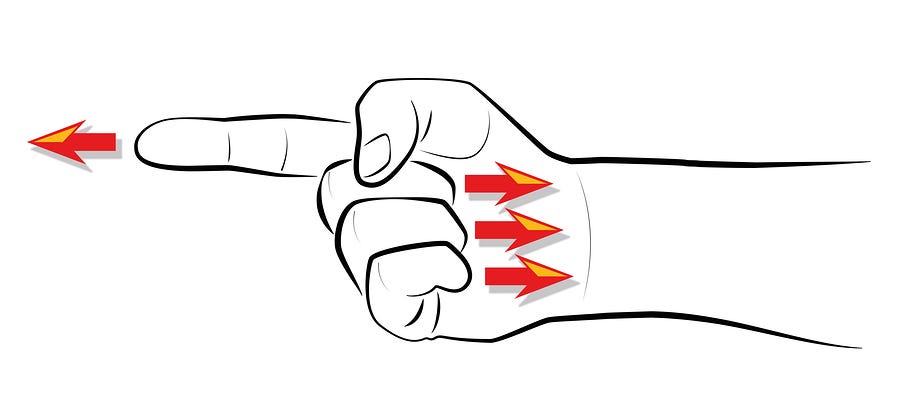Micromanagement happens when a manager closely supervises every aspect of their team’s work, often to an excessive degree. A micromanager constantly scrutinizes decisions and tasks, making employees feel like they’re not trusted to do their jobs. This management style can create a stressful and demotivating work environment, reducing creativity, productivity, and overall job satisfaction.
Instead of delegating, micromanagers keep all decision-making power to themselves, often believing that things won’t be done correctly unless they oversee every detail. They also tend to demand frequent updates, focus on minor details rather than big-picture goals, and struggle to let go of control.
While their intentions may be to maintain quality or prevent mistakes, micromanagement often backfires. Let’s explore the phenomenon further and learn how to work around it.
Table of Contents
Why Do People Micromanage?
That question has no one answer. There are several reasons why people micromanage. Various emotions and sentiments, such as fear of failure, an intense need for dominance and control, inexperience in management, insecurities, incompetent team members, ego, etc., can be among these causes. For some micromanagers, it may be issues in their personal lives bleeding into the workplace.
However, the most evident and frequent cause of micromanagement reported is a lack of respect and trust in team members. Wanting to feel more connected with lower-level workers and feeling more comfortable doing their old job, rather than overseeing employees who now do that job, are other common factors.
Signs You Are Being Micromanaged
We have broken down the most typical traits that demonstrate whether you are being micromanaged or if you are the micromanager.
Excessive Check-Ins
It is ineffective and, let’s be honest, obnoxious to stand over someone’s shoulder and observe their every action. Being watched all the time causes many people to freeze or feel very uneasy, which leads to tension and even mistakes.
It is customary to provide progress updates and check-ins on a reasonable basis every week. However, you can be certain that you are either being micromanaged or that you are being a micromanaging boss yourself if you are asked for updates daily. People waste time generating detailed reports instead of concentrating on their actual job duties as a result of this obsession with constant updates.
Lack of Delegation
Micromanagers avoid assigning work and handle everything themselves since they don’t think anyone can perform a good job. Naturally, it doesn’t work for everyone, and since micromanagers aren’t superheroes, they must return to reality and understand that jobs should be assigned to those who are qualified to complete them and possess the particular skills required.
Constant Criticism

When they have nothing to complain about, micromanagers whine about everything. The problem is that you will only see faults and imperfections in other people if you are always searching for them. These criticisms frequently concern the slightest details that have nothing to do with the way duties are carried out. Micromanagers typically believe they are just encouraging perfection, but in reality, they are depleting their employees’ motivation.
Lack of Freedom
Micromanagers dictate to staff members without allowing for initiative and creativity because they lack faith in others to perform their duties. It can be quite annoying and disappointing to be instructed exactly how to complete a task all the time, especially if your profession involves creativity.
Micromanagers also can’t see allowing others to make their own decisions. Even while your work probably needs to go through some sort of clearance process, that doesn’t imply you shouldn’t make certain decisions while working.
Actually, the exact opposite is true: you were hired because you are the best candidate for the position and because your knowledge will allow you to make decisions that will advance the company. For workers who are just beginning their careers, managers might serve as role models. However, it can be disheartening, demoralizing, and intimidating if that manager shows little interest in mentoring juniors.
Other features of micromanagers include asking to be cc’d on every email activity, attending all staff meetings, and redoing others’ work.
Effects of Micromanagement
Compared with people at high-trust companies, people at low-trust companies report 74% more stress, 106% less energy at work, 50% lower productivity, 13% more sick days, 76% less engagement, 29% less satisfaction with their lives, and 40% more burnout. This Harvard Business Review study truly cements the importance of trust in the workplace.
Micromanagement, regrettably, is a definite way to undermine trust. “I don’t trust you to do it right” is a clear message that leaders convey when they overly supervise their staff or deny them autonomy in their work. Such a management style not only makes work life tough and unsatisfactory for employees but also impacts the company as a whole.
Impact on Employees
A worker’s performance will deteriorate if they feel overly watched and exposed. They will become more concerned with appeasing their manager, which can affect the quality of their work in the long run. Micromanagement inhibits originality. Personal solutions and unconventional ideas are limited because micromanagers give so much direction. “My way or the highway” is the most often taken rough road.
It saps motivation. While some workers may ignore it and continue to conduct their work in a composed manner, many, understandably, find it aggravating, frustrating, and just plain discouraging. Employees are rarely motivated to put in more effort for their management when they are unhappy with them. Instead of doing more, they feel like doing less.
Impact on the Company
Individual disengagement and discontent are exacerbated by these variables, but the wider company is also negatively impacted. Micromanagers prevent their team members from advancing in their roles by restricting creativity and opportunity. Team members won’t have the abilities or drive to advance inside the company, which consequently impacts your talent pipeline.

Talented workers who want greater autonomy and acknowledgment for their efforts will leave your company, and the remaining staff won’t have the opportunity to acquire the skills they need. Any prospect of creating an internal talent pipeline will be destroyed by this high turnover and lack of progress.
How to Deal With a Micromanager
It’s always helpful to consider the possible causes of the micromanagement. As it has already been discussed, is it that they feel uneasy in a leadership position or that they are insecure and fear that their staff would think poorly of them? It can be beneficial to try to see things from a different angle.
It’s always a good idea to start by talking as openly (and professionally) as you can about how you’re feeling. Start by pointing out specific statements or behaviors that make you feel discouraged or untrusted. Be careful, as starting with “I feel micromanaged” is likely to cause a defensive, reflexive reaction and be ineffective.
Try to inform your manager or any other person you report to before they have a chance to inquire. For example, if you are aware that they frequently request updates, try to not wait till you are asked. This will demonstrate your dependability as an employee and your ability to complete duties, which will help to develop trust.
Naturally, achieving balance is key. Nobody has time to keep their manager informed about every activity they’re doing. Try to come up with a communication strategy that works for both of you.
If these actions don’t help reduce the amount of micromanagement at work, it’s probably time to talk to HR about your feelings and how they affect your job and well-being.

How to Stop Micromanaging
Micromanagement only makes things difficult for everyone involved. If you believe you possess some traits typical of micromanagers, take a look at the following tips to help you let go of these unhealthy habits.
Clear Expectations
Clearly defining each employee’s position, responsibilities, and goals also reduces the likelihood of micromanagement or the perceived necessity for it. There is no need to track their every action if everyone is aware of exactly what they should be doing and when. It is a positive move to take the time to plan and make sure that everyone is aware of the strategy.
Let Go of Perfectionism
It’s time to accept that there is no such thing as perfection. It will be much simpler for you to quit micromanaging your staff once you understand that. There are many different ways to complete a work or project, so rather than telling your team how to accomplish everything you think is ideal, give them the freedom to try new things and try out novel concepts; you never know how they might surprise you.
Timing Matters
Timing is crucial when getting involved in an employee’s work. Generally speaking, the most helpful managers don’t strive to anticipate every issue or jump in when they see one coming. Rather, they observe and pay attention until the other is prepared to listen attentively. They are aware that workers are more receptive to help when they are actively working on a project or task and have personally encountered its difficulties.

Training Programs
It might be time to invest in training and development opportunities if a supervisor’s micromanagement is a direct result of their worries about their teams’ capacity to finish the assigned responsibilities. Employees become more self-assured and competent when they believe they are expanding their knowledge and skill set.
This also allows managers to step back and show greater trust. Constant monitoring can also be replaced by providing frequent feedback sessions that emphasize development and progress rather than criticism.
Put an End to Micromanaging Today!
Micromanagement may seem like a way to ensure quality and control, but it often does more harm than good. It stifles creativity, lowers morale, and reduces productivity, leading to burnout and high turnover. Trusting employees, empowering them with responsibility, and focusing on results rather than minute details helps develop a healthier, more efficient workplace. If you recognize micromanagement in yourself or your workplace, take steps to encourage autonomy and open communication. This will lead to a stronger, more motivated team and a thriving organization.
Have a great idea? Let EvolveDash bring it to life! We specialize in empowering businesses with innovative digital solutions. We create custom mobile apps and build user-friendly websites, providing tailored solutions to meet your needs.
With over 100 satisfied clients and 450 successful projects, our team has the expertise needed to help your business stand out in a competitive market. Reach out to us today!
FAQs
What are the signs of micromanagement?
Micromanagers closely monitor every task, demand frequent updates, struggle to delegate, and focus excessively on minor details rather than big-picture goals.
Why do some managers micromanage?
Micromanagement often stems from a lack of trust, fear of failure, perfectionism, or insecurity about leadership abilities.
How does micromanagement affect employees?
It creates stress, lowers motivation, reduces creativity, and can lead to burnout and high turnover rates.
Can micromanagement be fixed?
Yes, by encouraging trust, clear communication, and delegation. Employees and managers should focus on outcomes rather than strict control.



















